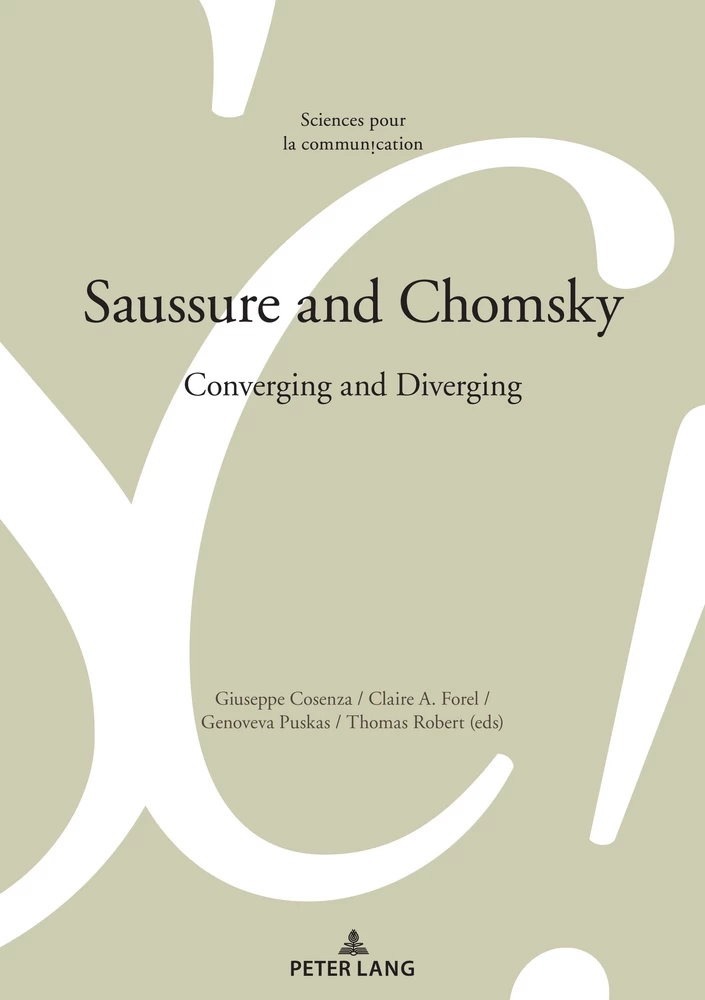Saussure and Chomsky. Converging and Diverging, ed. by Giuseppe Cosenza, Claire A. Forel, Genoveva Puskas, Thomas Robert. Bern, Peter Lang (« Sciences pour la communication, 131 »), 2022, 172 p., 4 ill. n/b, 2 tabl., ISBN 978-3-03434-457-9, € 46
DOI: 10.3726/b19300
Notice de l’Éditeur, avec table des matières et préface de L. de Saussure

« It is very good news that contemporary specialists of the works of Saussure and Chomsky get back to a serious comparison between them. Even though a number of divergences may seem obvious, it is particularly refreshing that some key convergences are actually being uncovered, which were long hidden under the confusing layers of radical and sometimes superficial readings of Saussure. Such convergences were also waiting for some more recent evolutions of the Chomskyan paradigm to emerge more clearly.
Saussure is still often viewed by functionalists as a naturalist (for langue is an entirely psychic object organized with general principles in the brain, and, as Constantin writes, “langue is a part of language”, which is crucial since language is a “faculty” for Saussure) and by naturalists and formalists as a relativist or a pre-functionalist (because “langue is social in essence and independent of the individual” and “langue is a social institution”). I think that such opinions are built upon a very confusing usage of the term langue in writings like the Course, and more ideological than balanced interpretations of Saussure’s philosophy of language by following scholars.
Indeed, the concept of langue seems to be about two clearly different things. First (and foremost, perhaps), langue is the fundamental and universal set of principles determining natural language. It is a system of signs, whatever the actual language this system is filled with. Second, langue refers to specific languages; it is in that sense for example that langue is only fully realized by the mass of speaking subjects within a community. »
Extrait de la préface par L. de Saussure

